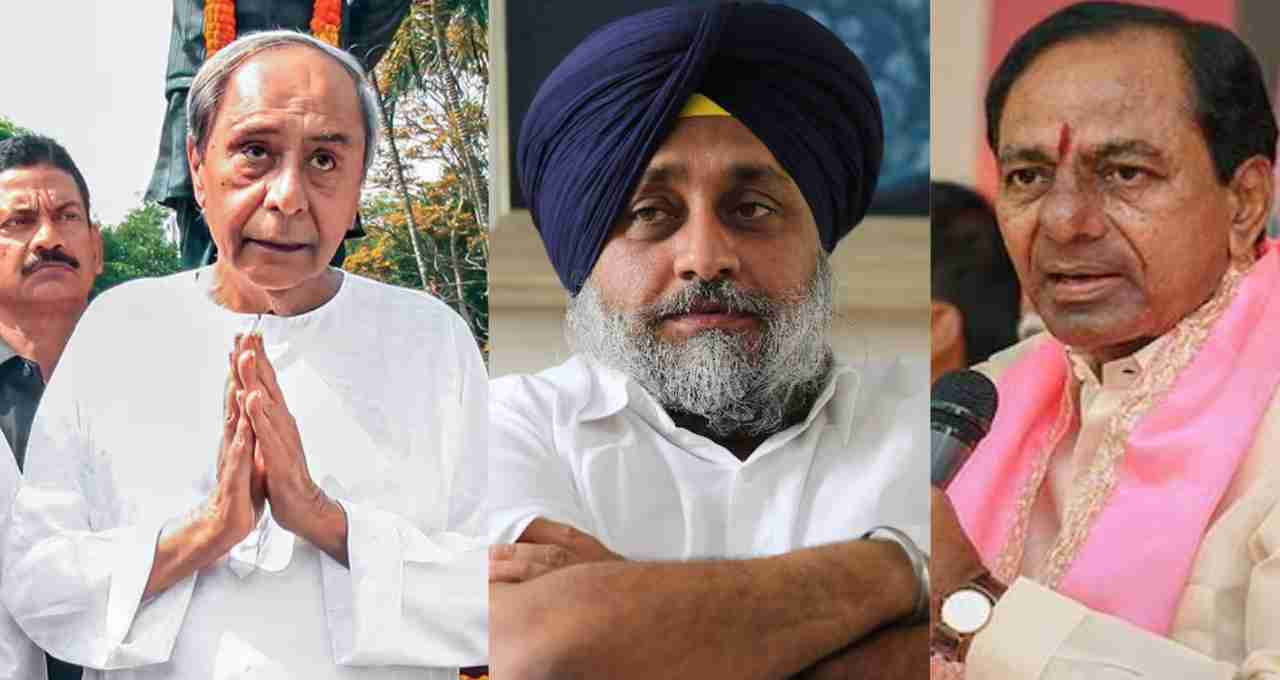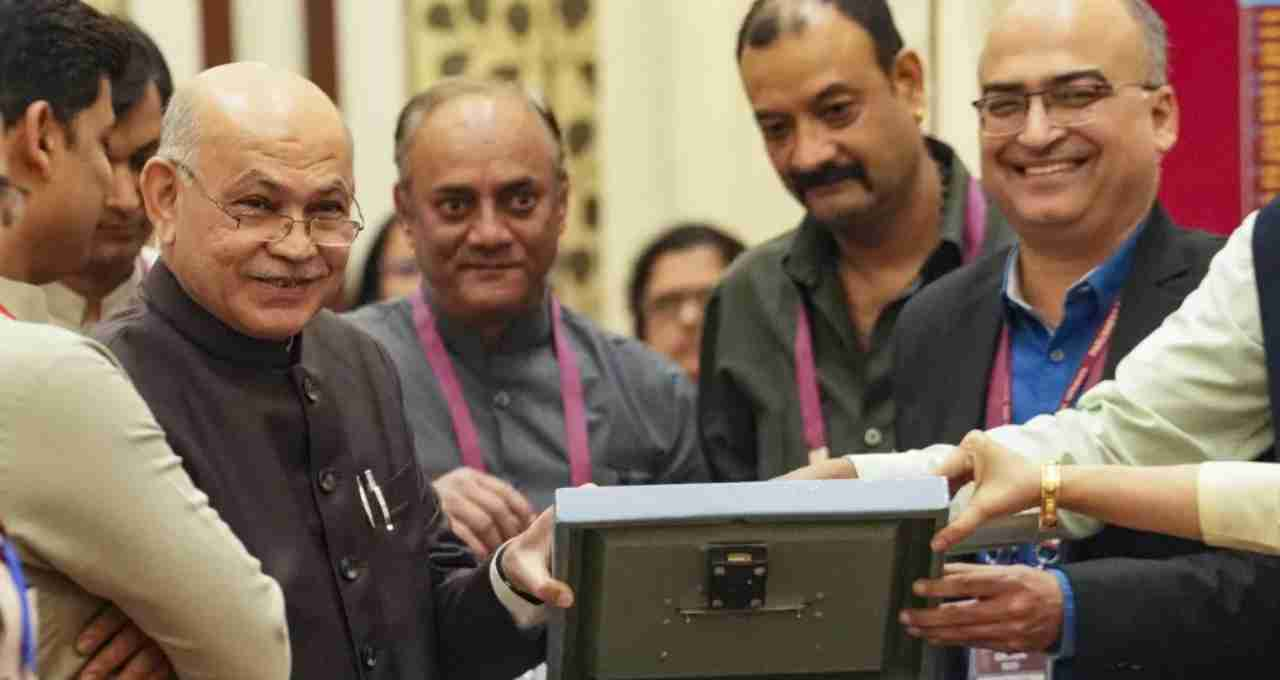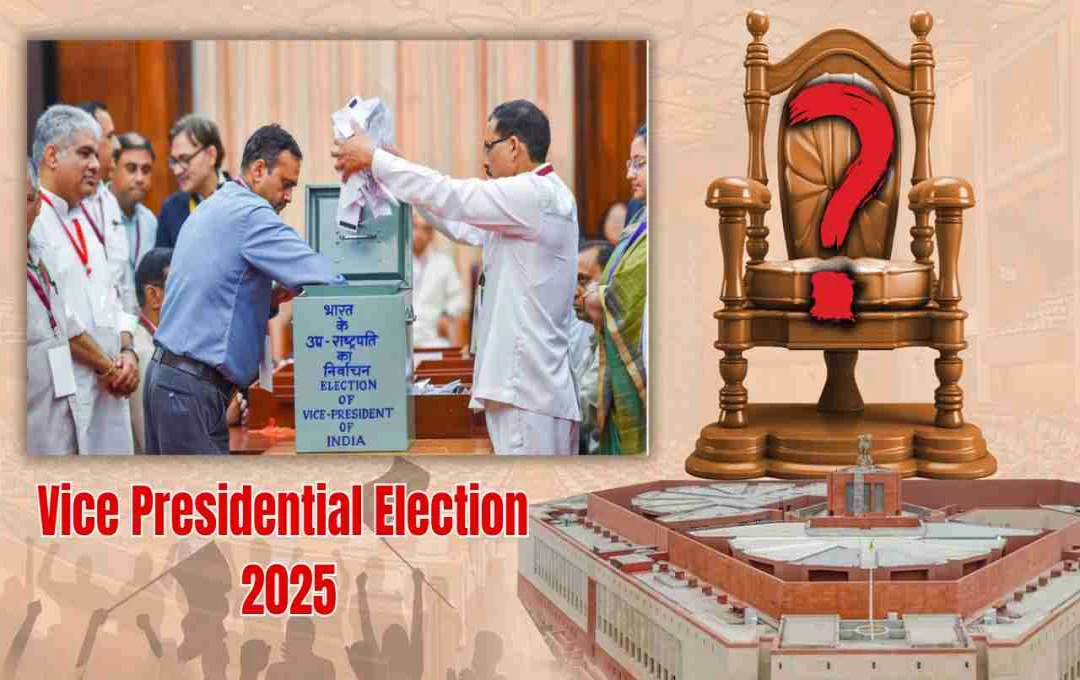The Vice Presidential election is a contest between BJP-NDA's C.P. Radhakrishnan and the INDIA bloc's B. Sudhakar Reddy. BJD, SAD, and BRS have boycotted the voting. All eyes are on the majority and political impact.
VP Election 2025: Voting is underway in both houses of Parliament for the Vice Presidential election. This time, the contest is between C.P. Radhakrishnan and B. Sudhakar Reddy. C.P. Radhakrishnan is the candidate of the ruling alliance, while B. Sudhakar Reddy has the support of the INDIA bloc. The election results are expected by Tuesday evening.
However, three significant political parties have decided to boycott the voting in this election. The absence of these parties could impact the number game in the Vice Presidential election. Let's find out who these three parties are and why they have distanced themselves from voting.
Biju Janata Dal's Boycott: Maintaining Equal Distance Nationally
The Biju Janata Dal (BJD), led by former Odisha Chief Minister Naveen Patnaik, has instructed its MPs to stay away from the Vice Presidential election. The party states that this decision has been taken under its policy of maintaining an equal distance from both the NDA and the INDIA bloc at the national level.
The BJD has seven MPs in the Rajya Sabha. These MPs are Niranjan Bish, Sulata Deo, Muzibulla Khan, Subhasish Khuntia, Manas Ranjan Mangaraj, Sasmita Patra, and Debashish Samantray. The BJD has no representation in the Lok Sabha. The party has clarified that they will not accept any form of political pressure and will stay away from the Vice Presidential election as per their policy.

Shiromani Akali Dal's Grievances: Punjab Floods and Lack of Support
The Shiromani Akali Dal (SAD) has also distanced itself from the Vice Presidential election. The party states that neither the central government nor the ruling party in Punjab provided adequate support during the unprecedented floods in the state.
The party posted on X, writing that nearly one-third of the state is submerged in water, and homes and crops have been completely destroyed. The Akali Dal described it as a man-made tragedy caused by the negligence and inefficiency of the Punjab government.
Former Union Minister Harsimrat Kaur Badal is the sole MP of the Akali Dal. She clarified that the party decided to boycott the election due to the government's indifference towards the flood-affected Punjabis.
Bharat Rashtra Samithi's Boycott: The Plight of Telangana Farmers
The Bharat Rashtra Samithi (BRS), led by former Telangana Chief Minister K. Chandrashekar Rao, has also kept its MPs away from the Vice Presidential election. The party's reason for boycott was the urea shortage and the suffering of farmers in the state.
The party's working president, K.T. Rama Rao, stated that the BRS had warned the state and central governments about the urea shortage for the past 20 days. Despite this, no concrete steps were taken. In protest and to show solidarity with the 71 lakh Telangana farmers, the BRS decided not to participate in the election.

The BRS has four MPs in the Rajya Sabha: Damodar Rao Divikonda, B. Parthasaradhi Reddy, K.R. Suresh Reddy, and Ravi Chandra Vadirajuraju. The party has no representation in the Lok Sabha.
Voting Process: How the Election is Conducted in Parliament
The Vice President is elected through an electoral college, which comprises members of both the Lok Sabha and the Rajya Sabha. This time, the electoral college has a total of 788 members. This includes 543 members from the Lok Sabha and 245 from the Rajya Sabha. Additionally, 12 nominated members of the Rajya Sabha are also eligible to vote.
However, some seats are currently vacant. With six vacancies in the Rajya Sabha and one in the Lok Sabha, there are a total of 781 electors in this election. Consequently, the majority mark stands at 391 votes.
The voting process is secret, and MPs cast their votes according to the system of proportional representation with a single transferable vote, indicating their preference. MPs can vote according to their conscience and are not swayed by party pressure.










